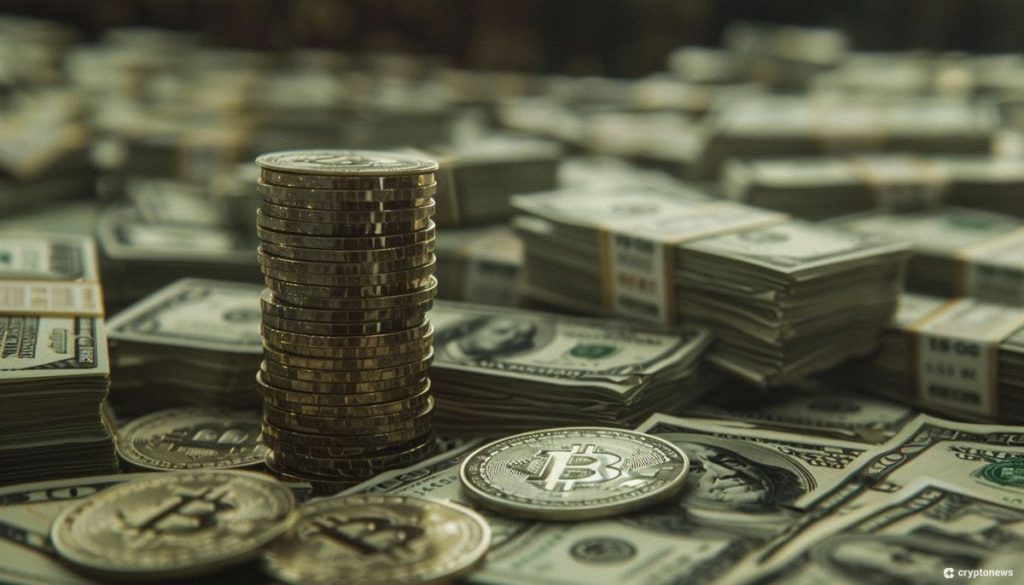Grayscale recently stated that although recent inflation figures may have a short-term negative impact on cryptocurrency, continuous inflation will ultimately increase sentiment towards cryptocurrency. Inflation refers to the prolonged increase in the general price level of goods and services in an economy over time, resulting in a decline in the purchasing power of fiat currency. In March, the Consumer Price Index (CPI) statistics exceeded expectations, with inflation growing by 0.4% month-on-month and 3.5% year-on-year. This unexpected increase in inflation has lowered confidence in the possibility of the Federal Reserve lowering interest rates in the coming months, as interest rate increases are used as a tool to reduce inflation by slowing economic activity. At the time of writing, traders estimate the probability of a June rate decrease at only 20.6%, compared to 45.9% for September, indicating expectations for the US Federal Reserve to hold interest rates constant in May and June.
The unexpected increase in inflation has resulted in a slowed state of the economy, leading to less volume flowing into assets like Bitcoin and investors decreasing their position. Bitcoin’s price action on April 10th fell by 2.5% in response to the unexpected CPI figures, although it corrected later that day. Grayscale’s managing director of research, Zach Pandl, argued in favor of the current negative market sentiment, acknowledging that rising inflation is a “short-term negative for crypto,” but citing events like the Bitcoin halving, rising economic growth, and growing crypto adoption as factors that will drive Bitcoin’s price. Pandle’s opinion is based on the belief that cryptocurrency will see long-term benefits from increased interest rates, as store-of-value assets like Bitcoin will remain in demand as fiat currency becomes devalued due to rising inflation and government overspending.
However, the high volatility of Bitcoin makes it an unpredictable investment, despite its success as a long-term store of value since its launch in 2010. Investors may be hesitant to invest in Bitcoin due to its unpredictability and may instead gravitate toward less volatile assets such as conventional bonds and term deposits. Grayscale believes that events like the Bitcoin halving and growing adoption trends like tokenization will create a supportive environment for crypto markets. As inflation rates continue to rise and fiat currency devalues, store-of-value assets like Bitcoin are likely to remain popular, especially as the United States government continues to overspend and keep interest rates high. The market sentiment towards cryptocurrency may shift in the long term as investors seek alternatives to traditional investments in response to rising inflation and economic uncertainty.
While the recent increase in inflation has affected market sentiment towards cryptocurrency in the short term, Grayscale believes that continuous inflation will ultimately increase demand for assets like Bitcoin, as store-of-value assets become more attractive in a devaluing fiat currency environment. The unexpected CPI figures have led to a decrease in confidence in the Federal Reserve lowering interest rates in the coming months, with traders expecting rates to remain constant in May and June. Despite the short-term negative impact of rising inflation on crypto, events like the Bitcoin halving and growing adoption trends are expected to drive Bitcoin’s price in the long term. As fiat currency devalues and interest rates remain high, store-of-value assets like Bitcoin are likely to appeal to investors seeking alternatives to traditional investments.


